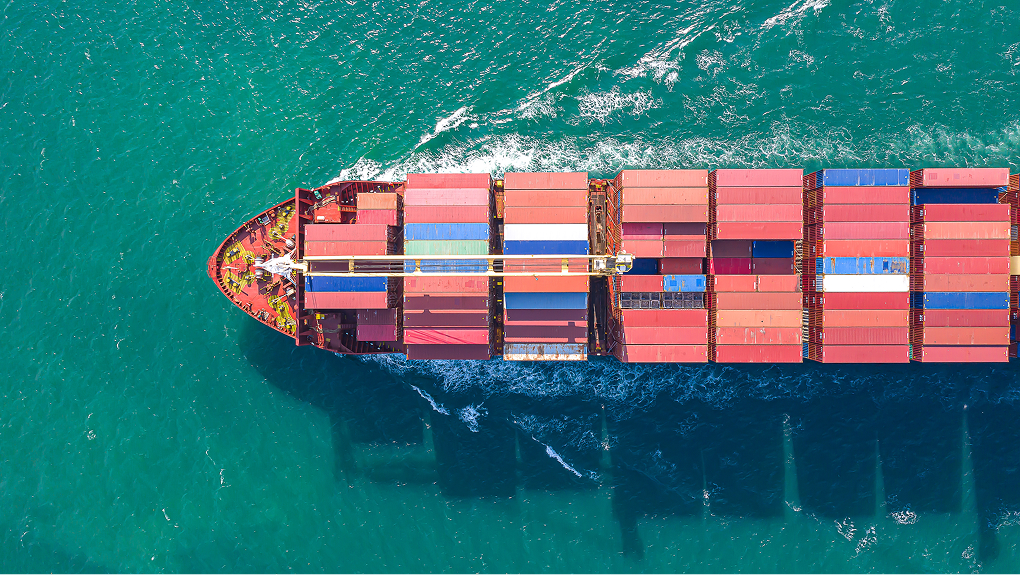“I’d recommend them to anyone working offshore. They fought hard and got me a settlement that helped cover my medical bills and lost wages.”



Barges are essential to the commerce and industry of the Gulf Coast, transporting vast quantities of goods, materials, and even equipment. While vital, working on or around these massive vessels carries inherent risks. A barge accident can lead to devastating injuries for maritime workers and others. If you or a loved one has suffered an injury in a barge accident on the Gulf, you need experienced legal representation to navigate the complex maritime laws and secure the compensation you deserve. At our firm, our maritime injury lawyers are dedicated to fighting for the rights of those harmed in offshore and waterway incidents.
Barges, whether propelled by tugboats or self-propelled, operate in diverse and often challenging environments—from busy shipping channels and rivers to offshore construction sites. The sheer scale and operational nature of barges mean that accidents can be exceptionally dangerous.
Many barge accidents are preventable and often stem from negligence or unseaworthy conditions. Common causes include:
The types of injuries sustained in barge accidents are often severe and life-altering, reflecting the powerful forces involved in these incidents. These can include:
If you are injured in a barge accident, specific federal maritime laws govern your right to compensation. It’s crucial to understand which laws apply to your situation, as they dictate the type of claim you can pursue.
For most crew members working on barges that are “in navigation” (capable of moving on navigable waters), the Jones Act is the primary legal avenue for recovering damages. This federal law allows injured seamen to sue their employer for negligence if that negligence, however slight, contributed to their injury. Under the Jones Act, you may be entitled to compensation for medical expenses, lost wages, pain and suffering, and loss of earning capacity. Seamen are also generally entitled to “maintenance and cure,” which covers daily living expenses and medical treatment until they reach maximum medical improvement, regardless of fault.
If you are injured while working on or near a barge, but are not classified as a “seaman” under the Jones Act (e.g., longshoremen, harbor workers, shipbuilders, repairers), you may be covered by the Longshore and Harbor Workers’ Compensation Act (LHWCA). The LHWCA provides no-fault compensation for medical expenses and lost wages, ensuring workers receive benefits even if their employer was not negligent.
Depending on the circumstances of the accident, other maritime laws or general maritime law principles may also apply, such as unseaworthiness claims (a vessel owner’s absolute duty to provide a safe and fit vessel) or the Death on the High Seas Act (DOHSA) in cases of fatal accidents occurring more than three nautical miles from shore.
The complexities of maritime law, coupled with the formidable resources of vessel owners and their insurance companies, make pursuing a barge accident claim a challenging endeavor. An experienced barge accident attorney is essential to protect your rights and maximize your recovery.
Our legal team will conduct a meticulous investigation into your accident. This includes:
We will work tirelessly to ensure all your damages are accurately assessed and fiercely pursued. This includes compensation for:
Maritime law is distinct from land-based personal injury law or state workers’ compensation. Our firm possesses an in-depth understanding of these unique federal statutes and precedents. We will handle all negotiations with insurance companies and defense attorneys, and if a fair settlement cannot be reached, we are fully prepared to take your case to trial to achieve the justice you deserve.
Prioritize your safety and seek immediate medical attention. Report the incident to your supervisor, if possible, and gather any available evidence like photos or witness information. Avoid giving recorded statements to your employer or their insurer without legal counsel.
The statute of limitations for maritime injury claims, including those under the Jones Act or LHWCA, is typically three years from the date of the injury. However, exceptions can exist, and it’s always best to contact an attorney as soon as possible to avoid missing critical deadlines.
Under the Jones Act, a seaman can still recover damages even if they were partially at fault for their injuries. This is due to a principle called “comparative negligence,” where your damages may be reduced by your percentage of fault, but you are not barred from recovery.
“Maintenance and cure” are no-fault benefits provided to injured seamen under general maritime law. Maintenance covers your daily living expenses (rent, utilities, food) while you are recovering, and cure covers your reasonable and necessary medical expenses until you reach maximum medical improvement. Most seamen injured in the course of their employment are entitled to these benefits.
Federal law protects maritime workers from retaliation for filing a legitimate injury claim. If your employer takes adverse action against you for seeking compensation, you may have an additional claim for retaliation.
A serious injury from a barge accident can have a profound impact on your life, affecting your health, your ability to work, and your financial stability. You don’t have to face the aftermath alone. Our experienced Gulf Coast maritime injury lawyers at our firm are here to provide the aggressive and compassionate legal representation you need. We are committed to fighting for the maximum compensation for your losses, allowing you to focus on your recovery.
Don’t delay in protecting your rights. Contact our knowledgeable Gulf Coast barge accident lawyers today for a free, confidential consultation.
